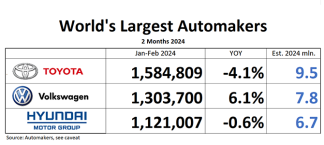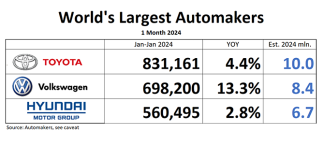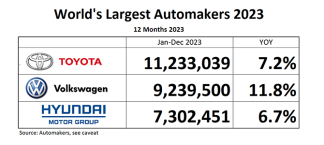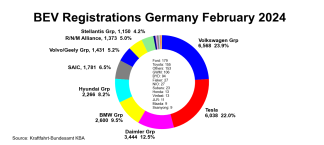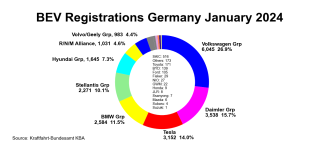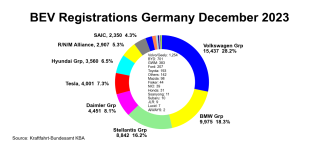
In the eight and a half years since I began studying and writing about the auto industry in a professional capacity, my positions on the topics of the day have rarely failed to cause some level of controversy. I’ve long since lost count of the number of enraged comments, emails and tweets my writing has inspired, and I’ve even had my last name mocked by the White House press secretary during a press gaggle on Air Force One after an Op-Ed I wrote for the New York Times was misquoted by Rush Limbaugh. Once the spokesman of the leader of the free world has made an “Animal House” joke at your expense, every subsequent howl of outrage tends to fade into the background a bit … at least until the most influential automaker in the world smears you with the baseless innuendo and outright lies.
Ever since Tesla Motors wrote a salty blog post responding to my investigation of its use of non-disclosure agreements in return for “goodwill repairs,” a thousand flowers of anger, hatred and slander have bloomed across the internet. An online lynch mob, seemingly unleashed by Tesla and its CEO Elon Musk, has flooded social media, forums and comment sections with false and defamatory statements about me, my motivations and my reporting. Were these attacks in any way fact-based or substantive, we might be able to have an interesting and illuminating debate about the issue at hand. But because Tesla apparently chose to attack me personally, in vicious, indiscriminate terms seemingly calculated to cause as much harm to my professional credibility as possible, it’s time to get truly salty. In fact, if you’re following a low-sodium diet, you may want to go ahead and stop reading now.
In what appears to be a desperate attempt to conceal the fact that the National Highway Traffic Safety Administration shared my concern about Tesla’s use of non-disclosure agreements and demanded changes to its “goodwill repair” contracts, Tesla took an important safety and regulatory issue and made it personal. In an official blog post “The Tesla Team” accused me of “fabricating an issue” and openly speculated that I “or [my] associates have something financial to gain by negatively affecting Tesla’s stock price,” backing these outrageous accusations with not a shred of evidence. The post goes on to say that I “caused negative and incorrect news to be written about Tesla by reputable institutions,” as if every major media outlet in the country had somehow forgotten how to exercise journalistic and editorial discretion in the face of my dastardly “fabrication.”
This compound slur, on both myself and the entire media, is laughably inept. If I “fabricated” the issue at the heart of my story, namely Tesla’s demand that customers sign NDAs in order to receive “goodwill repairs” for their defective vehicles, why did NHTSA call these contracts “troubling” and “unacceptable”? Why did NHTSA demand that Tesla modify these agreements to clarify that owners are in fact allowed to report defects to NHTSA, and why did Tesla comply with NHTSA’s mandate? Was NHTSA hoodwinked by my fabrication, along with every auto industry reporter in the country? If so, why did Tesla not point it out in its blog post?
The answer was obvious: Tesla’s NDAs were indefensible, and no automaker can afford to defy or defame the federal auto safety regulator. The automaker and its billionaire CEO lashed out at myself and the media more broadly because it could. As an independent blogger, without the backing of a major media outlet, I was an especially convenient target for Tesla’s wrath.
Having found the most vulnerable target for its misdirection campaign, Tesla followed its schoolyard bully logic to its logical conclusion, accusing me of an agenda that I could disprove only through the strength of my word. As I have now repeatedly stated in various public fora, including in a new statement published here at Daily Kanban, I have never at any time, nor would I ever under any circumstances, own any kind of financial instrument through which I might benefit from any movement in Tesla’s stock price. Tesla has yet to present evidence of any kind to support its deeply damaging aspersion, which explains why it refused to even make the accusation in a straightforward and honorable manner. Instead it simply speculated, saying “we don’t know if Mr Niedermeyer… or his associates have something financial to gain by negatively affecting Tesla’s stock price.” Had I engaged in such irresponsible and unsupportable conjecture, Tesla’s accusations of “fabrication” might have had some merit. But by accusing me of fabrication and then itself fabricating an utterly baseless slur against my character, Tesla heaped hypocrisy upon its already-galling attempt to mislead the public and destroy my professional reputation.
As if to confirm its contempt for the facts and its willingness to stoop to any depth to attack me, Tesla rounded out its broadside by creating the impression that I was somehow responsible for creating or directing the “Tesla Death Watch” series that ran at TheTruthAboutCars.com from May of 2008 until December of 2008. The Tesla Deathwatch, along with the longer and more contentious GM, Chrysler and Ford Deathwatches, were the creations of TTAC’s founder, Robert Farago, who was Editor-in-Chief of the site throughout the entire Tesla Deathwatch series. Though I contributed to the Tesla Deathwatch, I did so only as a freelance contributor to the website who neither assigned stories nor performed final edits.
Had “The Tesla Team” taken the time to do even the least bit of research before writing its inflammatory post, it would have found that I have repeatedly articulated a clear critical philosophy during my tenure at TTAC that is relevant to these circumstances: independent criticism is not a sign of hatred, but an important contribution to the success of any endeavor (a point Musk himself has made in the past). Indeed, TTAC’s commitment to critical coverage was fundamental to its relevance because so much of the automotive media goes to great lengths to maintain friendly relations with the automakers upon whom they rely for access to vehicles and executives. The long and agonizing decline of both GM and Chrysler, which Farago so presciently predicted years before their bankruptcies, was in fact enabled by a press corps that was too timid to call out Detroit’s blatant disregard for their customers and shareholders. Had the automotive media been more critical in their coverage of GM and Chrysler, TTAC’s Deathwatches –and tens of billions of dollars in taxpayer bailouts– might not have been necessary.
And yet tragically we find ourselves in a disturbingly similar situation with Tesla: parts of the press, awed by Tesla’s sexy vehicles and cowed by its brutal attacks on any dissent, has become so universally laudatory that criticism is once again being mistaken for hatred and troubling issues are conveniently ignored. Surrounded by compliant stenographers and cultish fans, Tesla has become blind to festering quality and customer service issues which threaten its moral mission as well as its viability as a company, lashing out at anyone who might dare to suggest that it is less than entirely perfect.
Tesla’s record of attacking reporters and reviewers is well established, but its assaults on customers who complain about its arrogant attitude and deficient quality are even more dangerous to its future viability. In its “grain of salt” blog post, Tesla blames the customer featured in Daily Kanban‘s investigation for the failure of his car’s suspension after 70,000 miles and backs up its accusation with outright lies, asserting that the customer lives on a dirt road when he in fact does not. It would seem that Tesla is so anxious to evade responsibility for the embarrassing failure of a Model S’s suspension, that it has effectively told customers that its products are incapable of handling the millions of miles of unpaved roads (and even more poorly-maintained paved roads) in its largest markets.
But of all its statements in recent days, Tesla’s unequivocal assertion that “there is no safety defect with the suspensions in either the Model S or Model X” most completely demonstrates the profundity of its unchecked hubris. I can not, nor did I try to, prove conclusively that a safety-related defect exists in a population of Tesla’s vehicles. Neither can Tesla conclusively prove that such a defect does not exist. Only NHTSA, the federal auto safety regulator, can make a definitive statement about whether any of Tesla’s vehicles presents a public safety risk so far, and its inquiry is still ongoing.
As Automotive News explains
Tesla said flatly: “There is no safety defect with the suspensions in either the Model S or Model X.” Well then. Case closed. Let’s move on to finding out when Musk will launch a rocket to Mars.
Except that NHTSA’s statement said it “is examining” — present tense — reports of suspension failure and “is seeking” — again, present tense — “information from vehicle owners and the company.”
Reports from Reuters and the New York Times confirm that NHTSA’s “review” and “data collection” are ongoing, and until the safety regulator concludes that no further review is necessary this matter remains entirely unsettled (Daily Kanban is seeking clarification of the status of NHTSA’s inquiry into Tesla’s suspensions and will report any information from the regulator as it becomes available).
After nine paragraphs of ad hominem attacks and glowing self-praise, Tesla’s “grain of salt” post concludes that “sometimes Tesla does make genuine mistakes. We are not and have never been perfect. However, we strongly believe in trying to do the right thing, and when we fall short, taking immediate corrective action.” Had it simply made that statement, along with confirmation that it was altering the nondisclosure clauses of its “goodwill repair” contracts, the long and salty post you are now reading would not have been necessary. Furthermore, my consistent impression that Tesla’s hubris is its hamartia –the tragic flaw of classical Greek tragedy, which drives the tragic hero’s greatest accomplishments only to become his undoing– might have begun to recede. Instead, the nine preceding paragraphs of arrogant self-praise and vicious ad-hominem leave me more convinced than ever that Tesla will eventually deplete its deep reserves of public affection even as it fails to heed the helpful warnings of those who can see what lies farther down the path it’s now walking.
